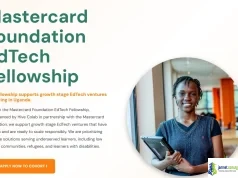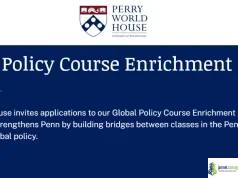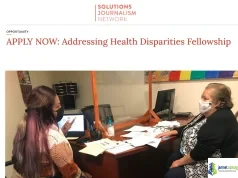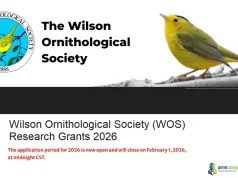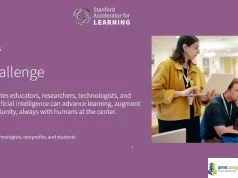The UNICEF StartUp Lab Education Challenge 2025 is an initiative focused on identifying and supporting innovative, tech-driven, and inclusive models to address the challenge of out-of-school children in Ghana. This is a call for innovators, social entrepreneurs, and startups operating in Ghana to design low-cost, community-based solutions that help to identify, monitor, retain, and educate children in marginalized and underserved communities. Successful applicants will receive a US$5,000 prototype grant to test their solution, alongside crucial mentorship from UNICEF experts and the Ghana Education Service (GES). The deadline for all submissions is 21 November 2025.
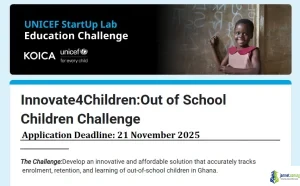

UNICEF StartUp Lab Education Challenge 2025 Summary Table
| Criteria | Details |
|---|---|
| Host Institution | UNICEF Ghana |
| Target Audience | Innovators, Startups, NGOs, Social Entrepreneurs (in Education) |
| Program Type | Innovation Challenge & StartUp Incubation |
| Primary Focus | Inclusive, Tech-Driven Solutions for Out-of-School Children in Ghana |
| Financial Support | US$ 5,000 Prototype Grant |
| Key Partner | Ghana Education Service (GES) |
| Innovation Requirements | Affordable, Scalable, Community-Driven, Inclusive |
| Application Deadline | 21 November 2025 |
UNICEF StartUp Lab Challenge 2025 Details
The UNICEF StartUp Lab Education Challenge 2025 is an initiative focused on identifying and supporting innovative, tech-driven, and inclusive models to address the challenge of out-of-school children in Ghana. This is a call for innovators, social entrepreneurs, and startups operating in Ghana to design low-cost, community-based solutions that help to identify, monitor, retain, and educate children in marginalized and underserved communities. Successful applicants will receive a US$5,000 prototype grant to test their solution, alongside crucial mentorship from UNICEF experts and the Ghana Education Service (GES).

Join our Telegram Channel for Instant Scholarship Updates
UNICEF StartUp Lab Challenge 2025 Benefits
The benefits of the StartUp Lab Education Challenge are organized into three tiers, focusing on immediate financial support, expert collaboration, and long-term national impact.
Tier 1: Prototype Funding (US$5,000 Grant)
This tier provides the necessary seed funding to turn an innovative concept into a testable solution.
- US$ 5,000 Prototype Grant: A direct, non-equity grant provided to the selected innovators to help build and test their education solution. This funding is crucial for developing the minimum viable product (MVP) or conducting a necessary pilot study.
Tier 2: Co-creation and Expert Mentorship
This tier delivers hands-on guidance and collaboration with key national and international education partners.
- Expert Mentorship: Access to specialized mentorship from UNICEF experts who possess deep knowledge in child development, technology, and global policy.
- National System Guidance: Mentorship is also provided by the Ghana Education Service (GES), ensuring the solution is viable and aligned with Ghana’s national education system and regulatory environment.
- Piloting Opportunities: Selected teams gain opportunities to pilot and co-create their solutions directly with UNICEF and national stakeholders in real-world settings.
Tier 3: National Influence and Scale
This tier outlines the long-term impact potential, offering a pathway for the solution to move beyond the prototype phase.
- Influence National Policy: The platform provides the chance to influence national-level education systems, ensuring the innovation’s success contributes to broader government strategies.
- Pathway to Scale: There is potential to scale your solution across Ghana and potentially other regions, especially if the model proves to be low-cost, impactful, and easily replicable.
- Addressing Root Causes: The challenge is focused on tackling fundamental barriers like poverty, disability, and rural isolation, leading to solutions with deep societal impact.
Eligibility Requirements for the UNICEF Challenge
Applicants must demonstrate a commitment to inclusive education and operate within Ghana.
- Applicant Type: Open to Innovators, social entrepreneurs, startups, or NGOs currently working on education-related innovations.
- Solution Focus: Solutions must be inclusive, specifically designed to address children who remain out of school, including girls, children with disabilities, or children in remote areas.
- Viability & Sustainability: Ideas need to be affordable, scalable, and community-driven, ensuring long-term success and integration with local life.
- Geographic Requirement: Applicants must be based (or operate) in Ghana to align with the country-specific goals and partnership with the Ghana Education Service (GES).
How to Apply for the StartUp Lab Education Challenge (Step by Step)
Since the exact portal URL is not provided in the text, the application process requires a clear search for the official link.
- Refine Your Solution: Develop your idea, ensuring it is a tech-driven, low-cost model specifically targeting the out-of-school challenge in Ghana. Clearly articulate how your solution addresses inclusivity (e.g., for children with disabilities or in marginalized areas).
- Prepare Documentation: Create a proposal or pitch deck that details the problem, your solution, the technology used, the community engagement model, the financial sustainability plan, and the team’s expertise.
- Locate the Official Portal: Visit the UNICEF Ghana official website or the UNICEF Innovation Lab website and search for the StartUp Lab Education Challenge 2025 application link.
- Submit Before Deadline: Complete the official online application form and upload all required documents before the deadline of 21 November 2025.
Application Deadline: 21 November 2025
CLICK HERE TO APPLY
Frequently Asked Questions (FAQ)
1. What is the main goal of the StartUp Lab Education Challenge?
The main goal is to find and fund innovative, tech-driven, and inclusive solutions that can successfully bring out-of-school children in Ghana back into learning pathways.
2. Is the US$5,000 prototype grant a loan?
No, the US$5,000 is provided as a non-repayable prototype grant to help the selected teams build and test their solution.
3. What types of organizations are eligible to apply?
The challenge is open to innovators, social entrepreneurs, startups, and NGOs that are actively working on education-related innovations in Ghana.
4. What is the application deadline for this challenge?
The deadline for application submissions is 21 November 2025.
5. Why is the Ghana Education Service (GES) involved?
The GES is involved as a key partner to provide mentorship and ensure that the solutions developed are aligned with national education policies and can be scaled within the national system.
6. What does UNICEF mean by an “inclusive” solution?
An inclusive solution means the idea must specifically address the needs of marginalized groups who are out of school, such as children with disabilities, girls, or those in remote, underserved communities.
7. Does the solution have to use technology?
Yes, the challenge specifically calls for designing tech-driven models. This is central to the StartUp Lab’s focus on scalable innovation.
8. Is the challenge open to international applicants?
The eligibility criteria specify that applicants must be based (or operate) in Ghana, to ensure alignment with the national context and the GES partnership.
9. What are the key elements to include in the application?
The application should clearly detail how the solution is affordable, scalable, community-driven, and effective in identifying, monitoring, retaining, and educating out-of-school children.
10. Besides the grant, what is the most valuable benefit offered?
The most valuable benefit is the mentorship from UNICEF and GES experts and the opportunity to pilot and co-create the solution within national-level education systems.


